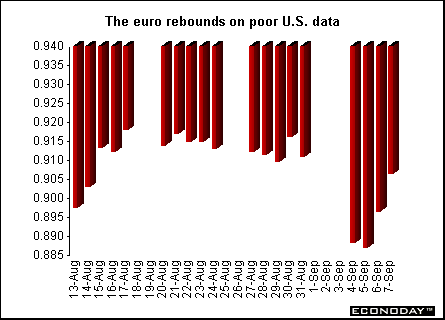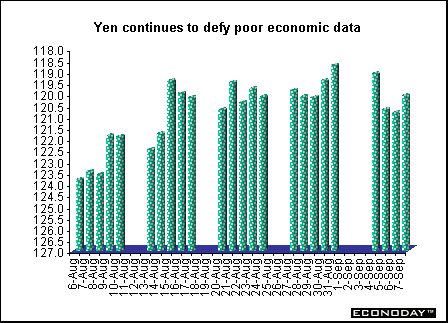 |

Currencies
Once again the euro was caught in a tug of war between dollar bulls and bears. At the first sign of a positive U.S. economic number, the euro sank. But when U.S. service sector purchasing managers indicated on Thursday that the service sector is being hit by the manufacturing recession, traders once again sold dollars. What traders really want is a clear-cut sign that the U.S. economy may have turned a corner. They obviously didn't get that on Friday either. The dollar fell against the euro and yen after the U.S. unemployment rate rose more than expected to a four year high in August. Sluggish growth, which comes even after the Federal Reserve has cut interest rates seven times this year, is curbing demand for dollar-based assets, a distaste heightened when equities markets plummet. Despite all the negative sentiment about the dollar, it rose against the euro and the yen on the week.

The yen fell on news that Japanese second quarter GDP shrank 0.8 percent on the quarter, after expanding 0.1 percent in the first quarter, extending 11 years of stop/start growth. An unexpected 0.5 percent rise in consumer spending kept the economy from shrinking even more. Expectations are that gross domestic product will shrink again in the third quarter, which would put Japan officially in a recession. That could weaken the yen as investors shun Japanese assets. Analysts say that there is no fundamental economic reason for the yen to strengthen, but other factors such as exporters repatriating profits prior to the end of the Japanese half fiscal year are creating demand for the currency. In addition, the economic slowdown has forced Japanese banks and businesses to bring back money held overseas to shore up their finances before September 30.



Introduction • Global Stock Market Indexes • Recap of Global Markets • Currencies • Indicator Scoreboard

The Bottom Line • Looking Ahead
|
 |